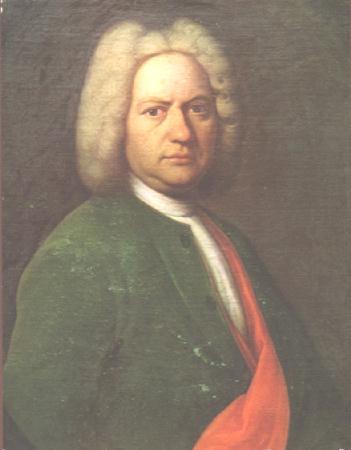 | Bach married a cousin, Maria Barbara Bach, in 1707. A year later he was offered the position of court organist and chamber musician to Duke Wilhelm Ernst of Weimar. This was his first important post, and he remained there for the next nine years. His reputation as both composer and organ expert grew during this period. He was routinely called to other cities to evaluate organs, and he produced many compositions. Kupferberg has noted that "the Toccata and Fugue in D Minor dates from this period, as does `Jesu, Joy of Man's Desiring.'" As concert master at Weimar, Bach expected to replace the old music director when he died. The Duke, however, gave the job to someone else, and Bach began to look for another position(Bach).
He was soon offered the position of music director in the court of Prince Leopold of Anhalt-Cothen, which he accepted. Kupferberg stated that "it was here that ... [Bach] really flowered as a ... composer, producing such masterpieces as the Brandenburg concertos and the Goldberg Variations, although he continued to compose religious music as well." Bach remained there for six years. He left Cothen following the death of Prince Leopold's wife. The prince remarried, and it is said that the new princess did not care for music. Bach left on good terms, however, returning frequently for guest performances. In 1729 he was asked to compose and perform the music for the prince's funeral(Bach). During the summer of 1720, while he was with the prince and the court ensemble in Carlsbad, Bach's wife of thirteen years, Maria Barbara, died. He was remarried a year later, to court singer Anna Magdalena Wülken(Bach) Bach's Last Position Departing Köthen in 1723, Bach's final position was director of the choir of the St. Thomas church and school, and music director for the city of Leipzig, a position he held for twenty-five years, until his death in 1750. His responsibilities were many. At St. Thomas, Bach was the headmaster of the school, teaching music and Latin, and was also in charge of music for the four leading churches in Leipzig(Bach). |